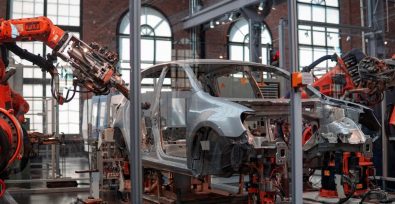A report published by the Washington Post reveals the evidence of an investigation into the supply chains of major auto companies that are producing electric vehicles (EVs). The findings portray that “every one of them is at high risk of making cars that use forced labor.”
Problems with material sourcing
Within this context, an especially pressing concern arises regarding material sourcing, particularly from China’s Uyghur region. This area is known for its coercive labor practices, but EV companies depend on their supply of materials like lithium for batteries, aluminum, zinc, graphite, and steel. Despite global efforts to curb the use of products from the Uyghur region, evidence suggests that many suppliers are attempting to bypass these restrictions. This raises serious questions about the ability of companies to vet their supply chains effectively and a doubling down on rules and regulations to ensure ethical sourcing practices.
“Chinese supply chains that provide the industry with materials for batteries, bodies and wheels include companies that openly use Xinjiang labor,” according to The Post’s examination.
Tesla’s silence – an ethical dilemma
Tesla has been particularly criticized because of its market dominance and moral image. Despite its strong stance against working with suppliers involved in forced labor, it remains notably quiet about the origins of materials from the Uyghur region. The company depends on China not only as a source of materials but also as a key market for its best-selling electric vehicles. This puts Tesla at the center of a larger industry issue: the importance of reevaluating supply chain practices to protect workers’ rights and uphold ethical standards amidst the growing demand for eco-friendly transportation.
“We know from every other industry there is that if we don’t fix this now, in the early days of this transition, it will be a massive mistake.” – Duncan Jepson
With the automotive sector at a crucial turning point in its transition towards sustainability, early interventions are important to prevent entanglement and complicity in a cycle of exploitation.
You can join us in the fight against Uyghur forced labor in automobile supply chains by signing our petition!







Freedom United is interested in hearing from our community and welcomes relevant, informed comments, advice, and insights that advance the conversation around our campaigns and advocacy. We value inclusivity and respect within our community. To be approved, your comments should be civil.
wys b amazon is better g